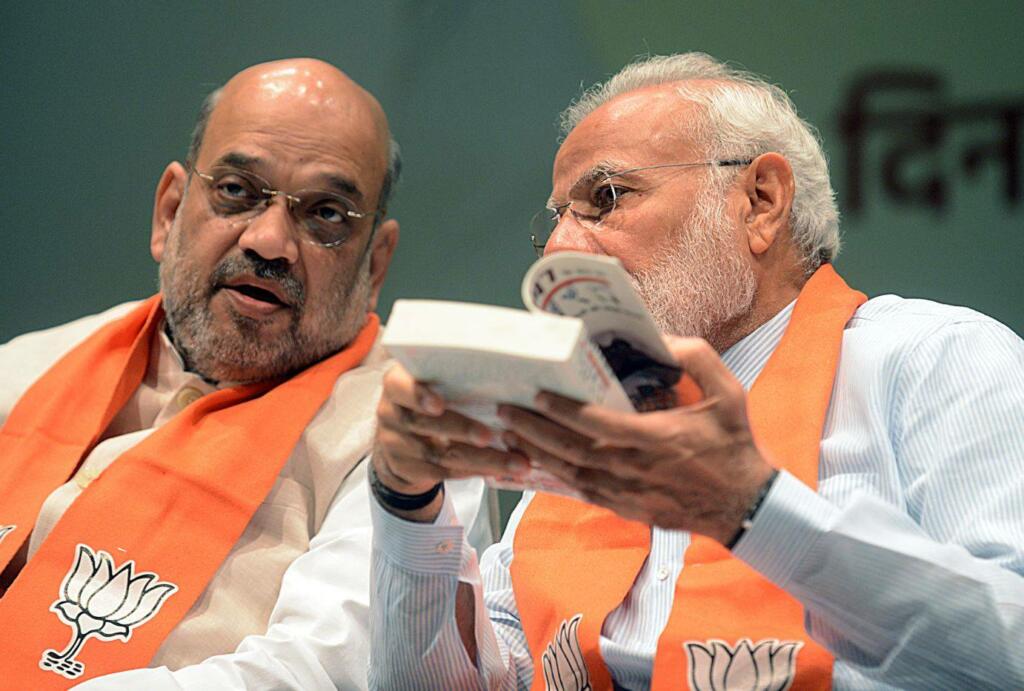The administration of the Union Territory of Jammu & Kashmir in a significant move has decided to issue domicile certificates to the husbands of native women married to people from outside the state. Earlier, domicile was not allowed for the spouses of local women residents who married outside the UT. However, the Narendra Modi led central government had addressed the issue and now they have fulfilled their promise.
The administration whilst making the new amendments has clarified that when the law talks about spouses, it means both men and women married outside could get domicile based on the domicile of their partner.
The issue of domicile was particularly one of the discriminatory subjects of the erstwhile state of J&K before the abrogation of Article 370. The amendment can also be termed as a feminist move as the women of Kashmir now have the right to pass their domicile status to their husbands, along with their male counterparts.
The said order has been issued by the commissioner/secretary of the General Administration Department (GAD) Manoj Dwivedi. The certificates will now be issued by district officials upon producing proof of marriage.
The order read, “In exercise of the powers conferred by the proviso to Article 309 of the Constitution of India, read with section 15 of the Jammu and Kashmir Civil Services Act 2010, the government hereby directs in sub-rule (1) of rule 5 of the Jammu and Kashmir Grant of Domicile Certificate Rules 220, after S.No/Clause 6, the following shall be added,”
While men marrying outside the state like former state CM Farooq Abdullah ensured that his wife Mollie, a British citizen, received the domicile status, similar wasn’t the case with the women. Rajasthan Deputy Chief Minister Sachin Pilot, despite marrying Sara Abdullah didn’t have the domicile status of Jammu & Kashmir but the amended legislation is expected to change it.
Prime Minister Narendra Modi had questioned this anomaly in 2019 by remarking, “The rights enjoyed by the daughters of other regions were not enjoyed by the daughters of Jammu and Kashmir.”
The Hindu population of the UT was the biggest casualty of the earlier law as Dogras and other indigenous groups had to give up their property rights. However, the change in legislation is significant and would help in restoring the demographics of the state which has been lop-sided due to rise of separatists and extremists.
Reported by TFI, to assimilate the entire Jammu and Kashmir region into the country more homogeneously, the Union Cabinet headed by PM Modi is working overtime. Last year, the central government had approved the Jammu and Kashmir Languages Bill 2020 which makes five languages; Hindi, Kashmiri, Dogri, English and Urdu—the official languages of the region.
It was an inconsistency that the three languages — Dogri, Hindi and Kashmiri — which are spoken by nearly 70 per cent of the population of Jammu and Kashmir were not approved for use in the official business of the state.
Read More: Finally! Pakistanisation of J&K to end as Kashmiri, Dogri, Hindi will now be official languages
Moreover, the Modi government in an attempt to bring the Dogra community out of the shadows of the Kashmiri’s had also announced a mega multimedia project worth Rs 10 crore. The project is set to be established in Jammu City and will highlight the glory days of the Dogra rule in the state.
Over the years the immense contribution of Dogras in Jammu & Kashmir’s history has gone unnoticed. The political narrative and discourse of the region has entirely shifted to the problems of Kashmir valley and the Kashmiri people.
These slew of changes brought in by the central government will help the UT of J&K to connect with the mainland, which the Abdullah’s and Mufti’s did not allow throughout their reign, before article 370 was struck down.
